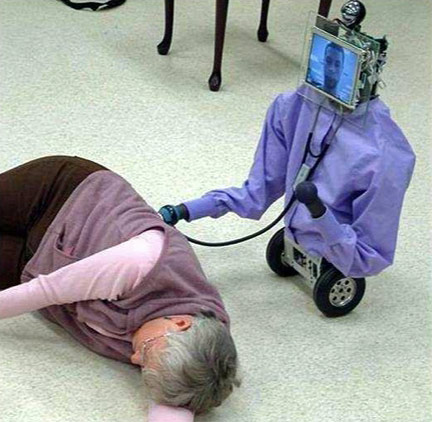Scientist demands protection from robots 'before it's too late'
University professor sees threat from army of metal cyborgs

Writing in the academic journal Science, robotics expert Professor Noel Sharkey of the University of Sheffield has called for international guidelines to be set for the ethical and safe application of robots "before it is too late".
Before you barricade the doors and set fire to your Roomba, however, Sharkey is more concerned about the rise of robots caring for children and elderly people than in a horde of mechanical warriors putting us all to work in the silicon mines.
Since the turn of the century, sales of professional and personal service robots have risen sharply and are estimated to total 5.5 million in 2008, rising to 11.5 million by 2010.
Swarm of cyborgs
The price of robot manufacture is also falling. Robots are at least 80 per cent cheaper now than they were in 1990, with Sharkey believing that they are set to enter our lives "in unprecedented numbers".
Sharkey notes that care robots are already in existence, from surveillance and communication cyborgs with cameras and bodies that can be controlled remotely from phones and PCs, to the Secom My Spoon automatic feeding robot; the Sanyo electric bathtub robot that automatically washes and rinses; and the Mitsubishi Wakamura robot, used for reminding people to take their medicine.
Despite this, no international legislation or policy guidelines currently exist, except in terms of negligence - which remains to be tested in court for robot surrogates.
Sign up for breaking news, reviews, opinion, top tech deals, and more.
"Because of the physical safety that robot minders provide," says Sharkey, "Children could be left without human contact for many hours or days, and the possible psychological impact of the varying degrees of social isolation on development is unknown."
So will robots of the future be helpful Metal Mickeys or dastardly Terminators? Let us know what you think below....
Mark Harris is Senior Research Director at Gartner.